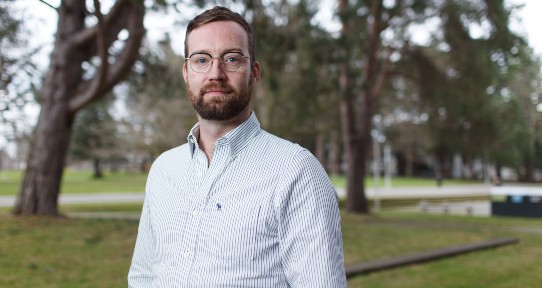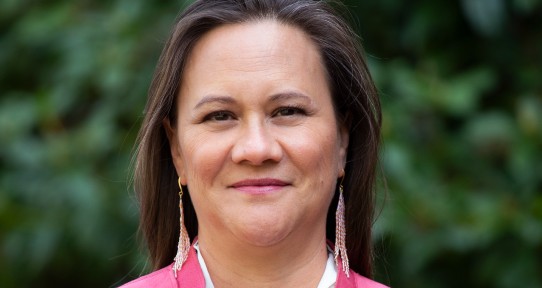HSD researchers secure health grants worth $5 million

Two research projects focused on addressing some of the most pressing issues facing society and our planet will receive almost $5 million worth of federal funding.
The Canadian Institutes of Health Research (CIHR) grants were among four awarded to the University of Victoria, two of which were awarded to research teams from the Faculty of Human and Social Development (HSD).
Public health
The largest grant, worth $2.6 million, will fund a study called, “Our Health: A Community-Based Participatory Study of Sexual and Reproductive Health of Two-Spirit and LGBTQQIA+ People Across Canada.”
Led by HSD Associate Dean Research Nathan Lachowsky (pictured above), the research team includes Renée Monchalin and Robert Beringer, both assistant professors in the School of Public Health and Social Policy, as well as postdoctoral fellow Meera Dhebar and PhD student Leo Rutherford.
Lachowsky says the study will fill knowledge gaps in sexual and reproductive health in queer communities, which traditionally have been overlooked in mainstream research. 2S/LGBTQQIA+ communities have unmet needs when it comes to sexual and reproductive care access. Since the COVID-19 pandemic, queer communities have less access to services such as fertility clinics, abortion services and gender-affirming care, Lachowsky says.
The project will provide research training to 2S/LGBTQQIA+ community members across Canada, an intervention developed by the main partner on this study, the Community Based Research Centre Society based in Vancouver.
Planetary health

The second grant, worth almost $2.3 million, is called “Archipelagos of Indigenous-led Resurgence for Planetary Health.” The shared leadership of this grant includes School of Indigenous Governance Director Hōkūlani Aikau (pictured above) and School of Public Administration’s Impact Chair in Transformative Governance for Planetary Health Heather Castleden. Five Indigenous early career researchers are co-applicants, including Indigenous Governance Assistant Professor Dawn Smith.
Aikau says their approach to planetary health works on two scales: this grant will support the place-based needs of Indigenous communities who know best how to restore and maintain healthy lands, waters, and people. The grant will also support a relational network of Indigenous-led resurgence across five projects.
“Indigenous people didn’t work in isolation but were and are part of an archipelago—a network—of people and practices that when linked produce planetary health,” Aikau says.
The case studies include cedar cultivation and carving in the Pacific Northwest; the songs, dances, and lessons derived from the Buffalo on the Great Plains; traditional land-based leadership-development practices in Hawaiʻi; community-based health practices in the Mariana Islands; and Indigenous farming, forestry, and fishing practices for sustainable business in Aotearoa.
Lachowsky says the federal grants bring critical financial resources to essential community and academic partnerships.
“These projects are focused on pressing challenges confronting our societies and planet. They demonstrate the ways in which scholars in HSD contribute timely and innovative work towards more just, equitable, decolonial, and sustainable futures.” —Nathan Lachowsky
